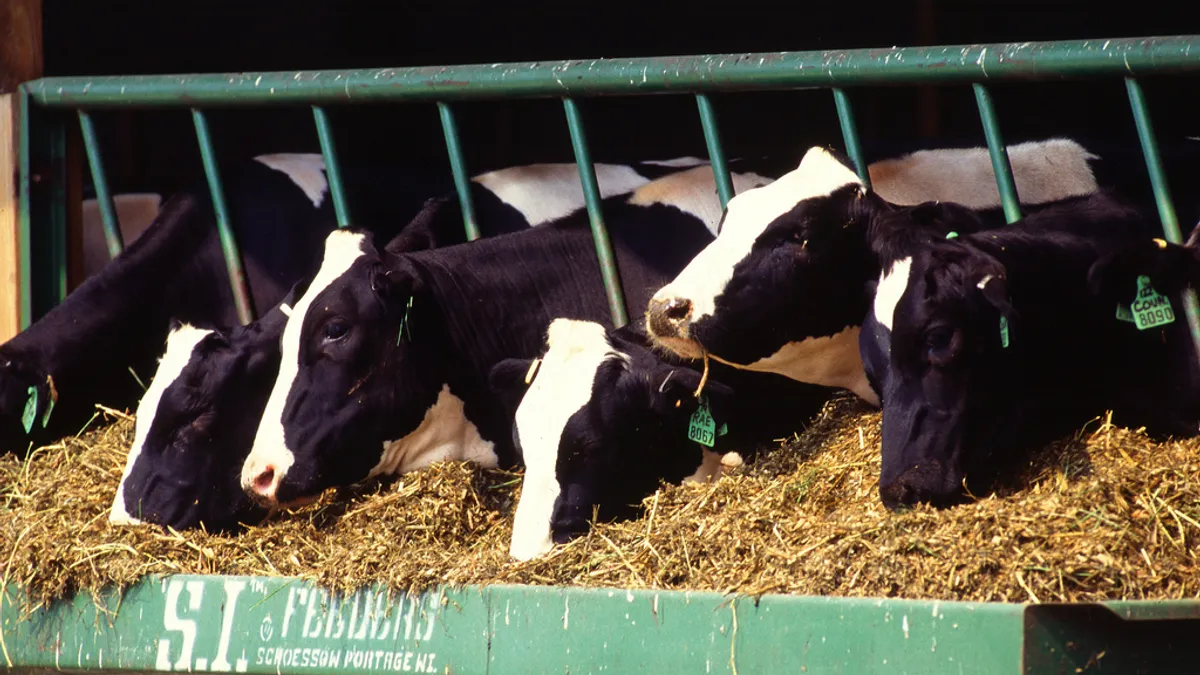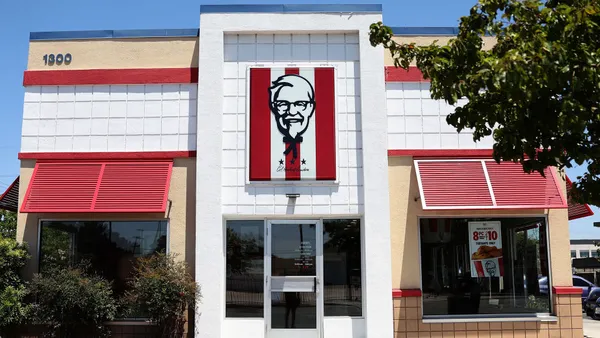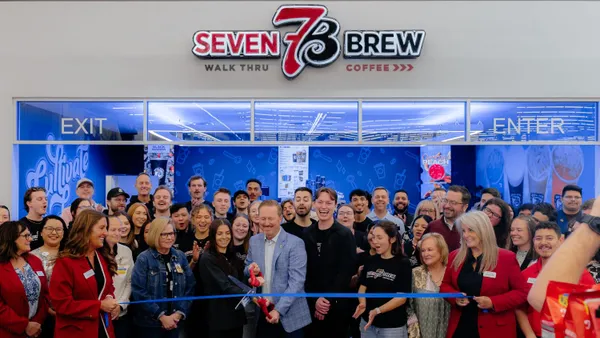Dive Brief:
- A global investor coalition challenged six of the largest quick service restaurant companies on Tuesday to reduce the greenhouse gas emissions and water usage of their meat and dairy suppliers, according to a news release from Farm Animal Investment Risk & Return.
- Investors sent letters to Domino's Pizza, McDonald's, Restaurant Brands International, Chipotle, Wendy's and Yum Brands asking for policies and targets toward this goal.
- FAIRR reports that agricultural emissions, including those from meat and dairy producers that supply the growing global QSR sector, are on track to contribute around 70% of total allowable GHG emissions by 2050. Livestock also is expected to use about 10% of yearly global water flows.
Dive Insight:
As scientists, policymakers, corporations and consumers alike rush to reduce the output of greenhouse gases in an effort to avoid global climate catastrophe, the $570 billion global QSR sector has become a target and, perhaps, for good reason. According to Jeremy Coller, founder of FAIRR and chief investment officer of Coller Capital, the environmental impact of the sector has hit an unsustainable level.
"To put this in perspective, if cows were a country, it would be the world's third largest emitter of greenhouse gases," he said in the press release.
The investor coalition is calling on these QSR giants to follow in the steps of the automobile, oil and gas industries that have set targets. The proposal specifically asks for the adoption of supplier policies, published targets, public disclosure of progress and a climate scenario analysis.
All six of the companies except for Domino's have some type of sustainability update prominently posted on their company websites. Last year, McDonald's became the first restaurant to commit to a science-based target of reducing emissions by 31% in its supply chain by 2030, while Yum lowered its water consumption by 10% between 2015 and 2017, according to the Wall Street Journal. Yum's sustainability report mentions that all of the company's environmental initiatives are examined through the lens of reducing GHG emissions and addressing climate change.
Further, Chipotle notes that it is on track to improve its supply chain emissions, which would include producing half of its burrito bowls domestically by 2020, and also measure its water usage, including what it recycles and reuses, by 2021.
In other words, progress has been made even as these companies expand their footprints. But this progress hasn't moved fast enough for this specific group of shareholders, who were most likely inspired by consumers. A new report from Nielsen shows that 81% of global consumers believe companies should help improve the environment, and 85% of millennials and 80% of Generation Z respondents say it is extremely or very important that companies implement programs to do so.
With more than $6.5 trillion among them, this group of investors certainly has the leverage to put pressure on these companies to expedite their efforts on emissions reductions within their supply chain. However, with the laundry list of environmental priorities — building materials, antibiotics use, efficient equipment, plastics reduction among them — that these companies have been tasked with focusing on within just the past few years, it is certainly a tall order to hone in on such a focus. But like these investors, the QSR companies also have quite a bit of leverage — through supplier negotiations, contracts and codes of conduct.
Just as viral images of plastic-filled oceans and predictions of an ominous plastic-filled future shifted companies' mindsets last year, greenhouse emissions pushing global warming to the 2°C tipping point is now in the spotlight. It might be a challenge, but these companies have plenty of incentive to do the work — Ceres reports that 85% of companies it surveyed cited water issues, such as droughts, as a financial risk.













